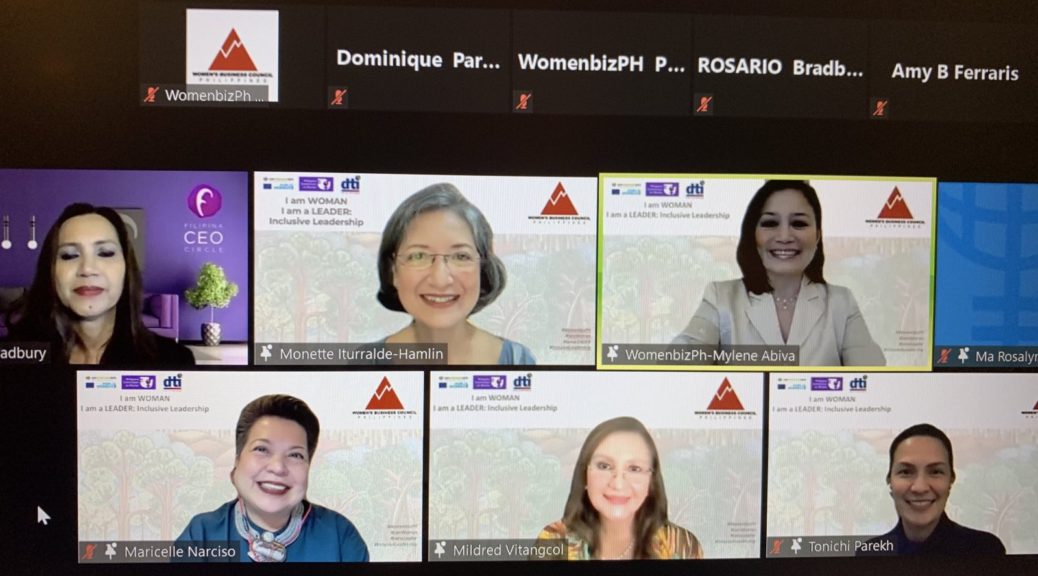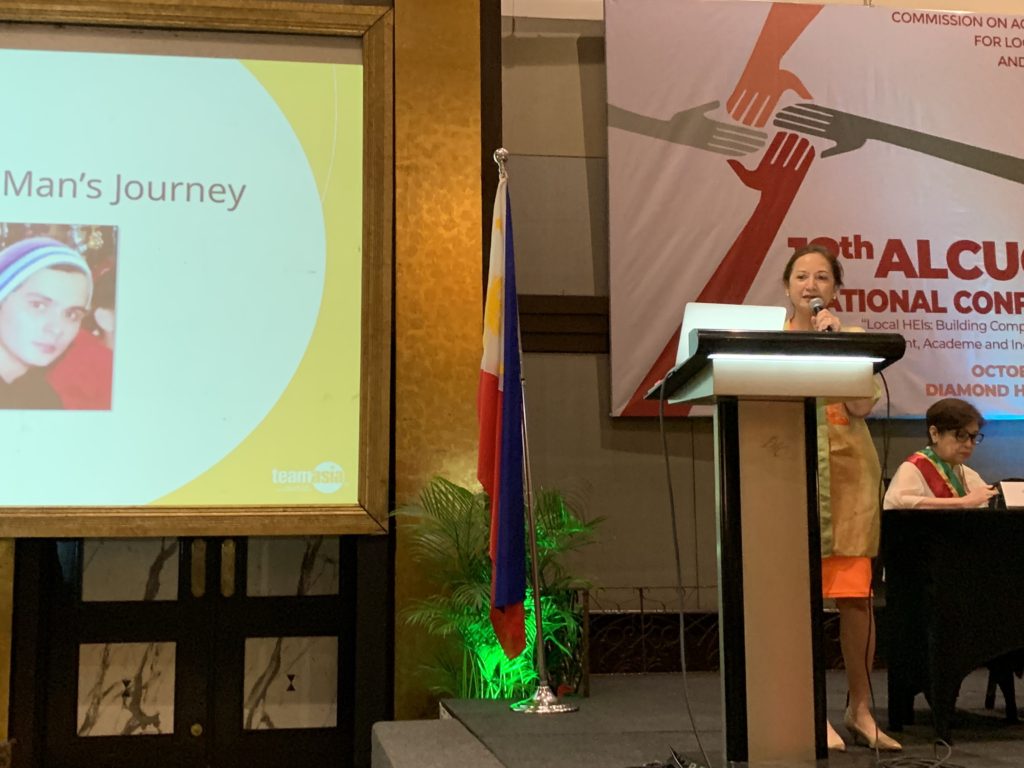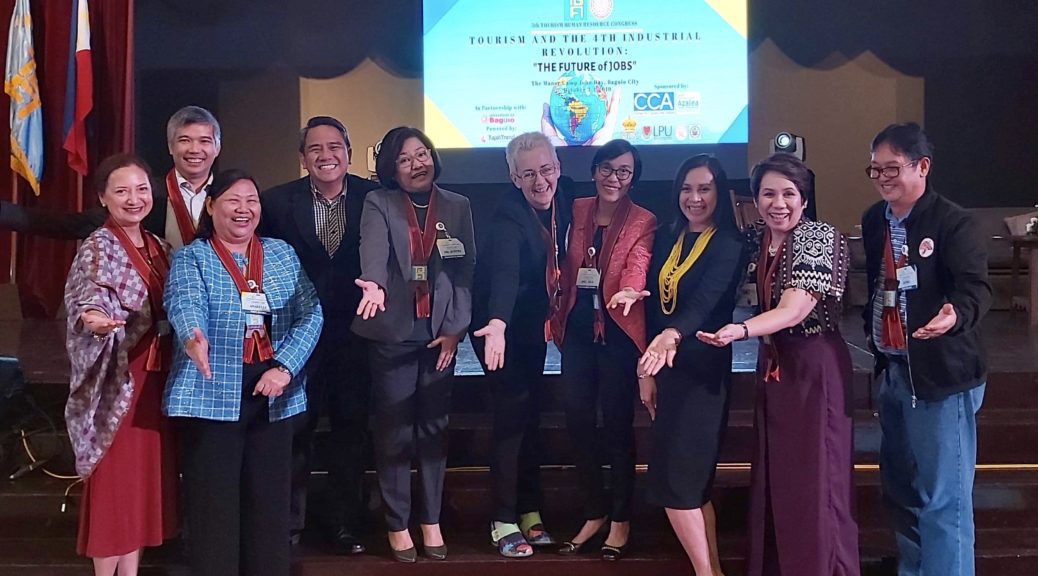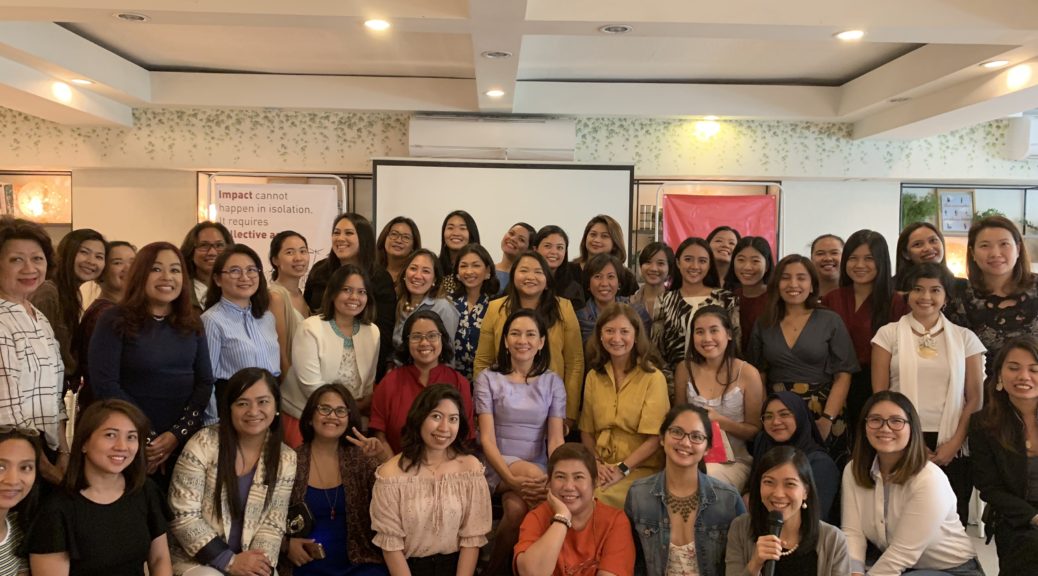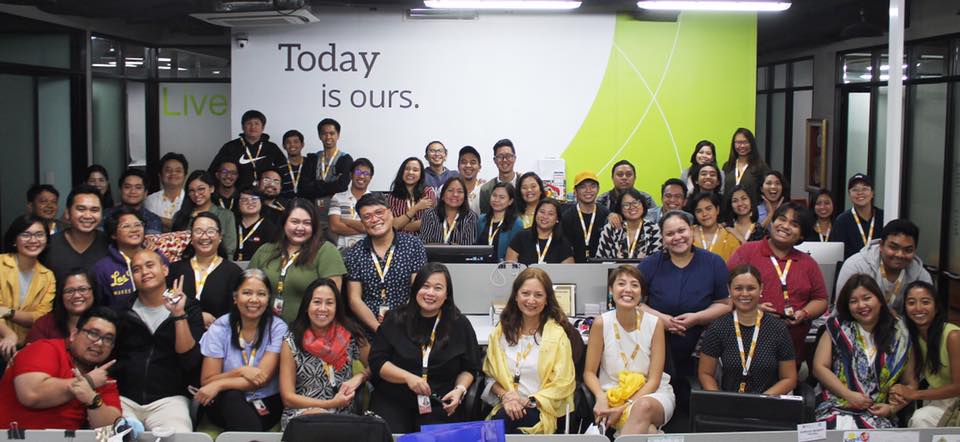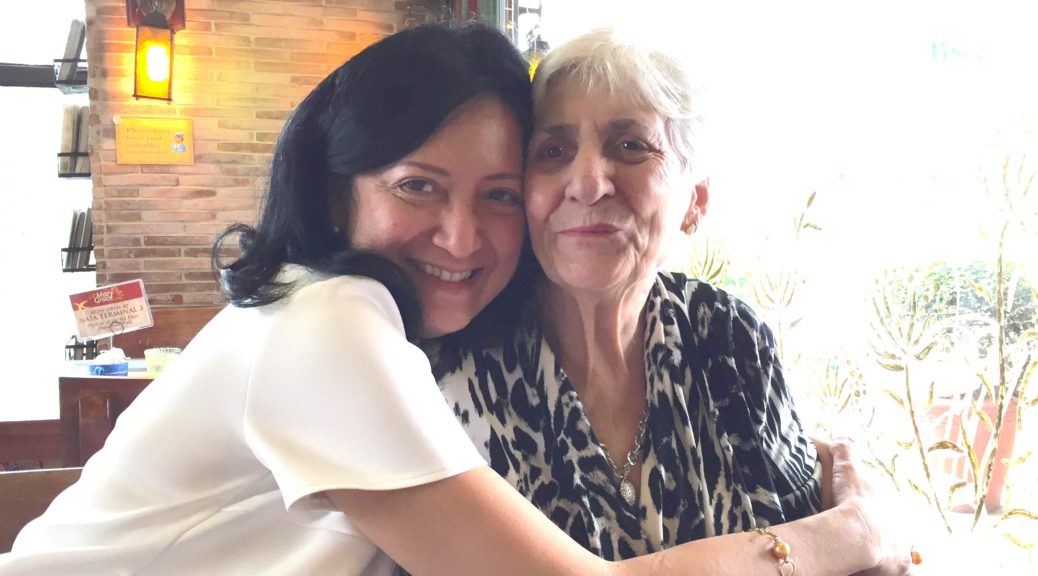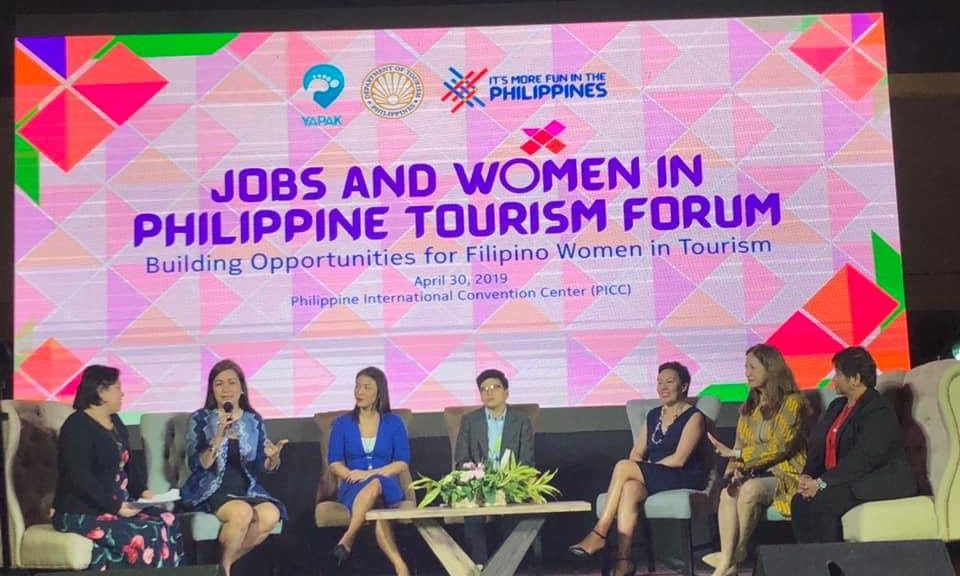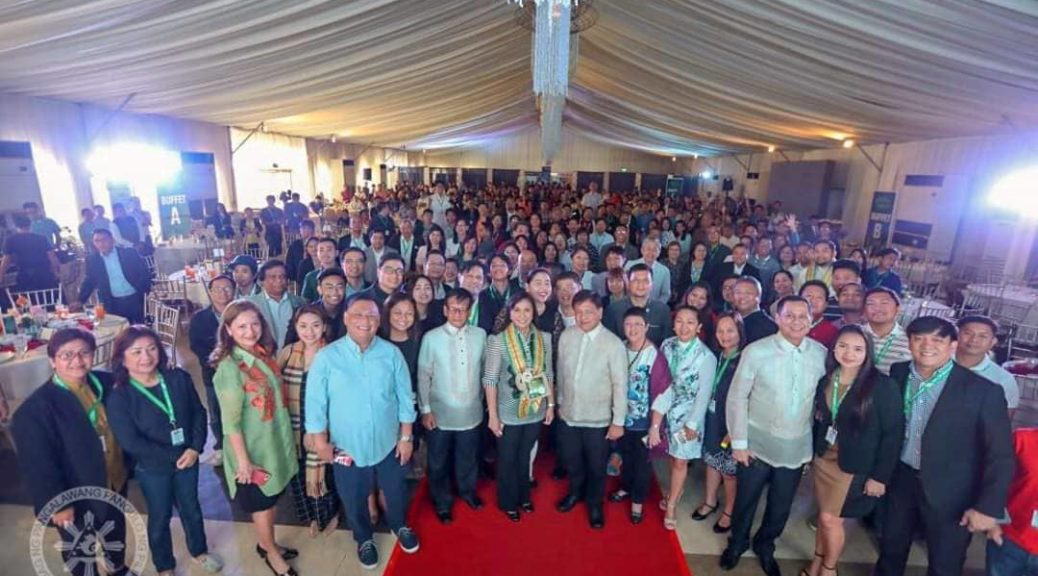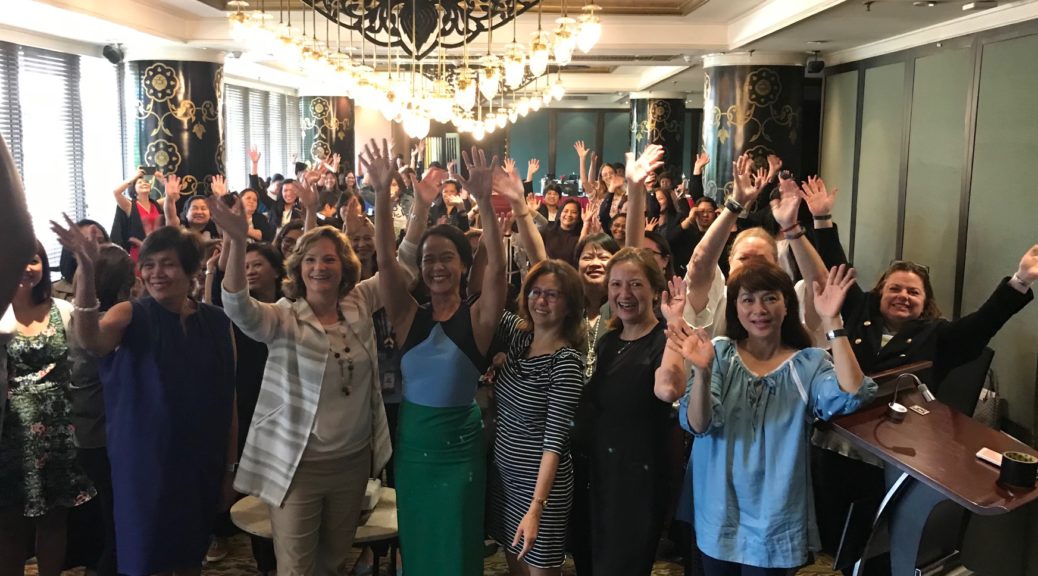What is Inclusive Leadership, and are we doing enough to make it happen?
This was the topic for the second session of the six-part Womenar Learning Series being organized by the Women’s Business Council Philippines (WomenBizPH), supported by UN Women, WE Empower Asia, Philippine Commission on Women, and the Department of Trade and Industry. Entitled “I am WOMAN. I am a LEADER,” the Womenar (yes, it’s a play in words of women and webinar) featured woman leader Rosario Cajucom-Bradbury who shared her journey on Inclusion as it applied to her career, her family, and her adopted home, the United States. As chairwoman of WomenBizPH, I moderated the Womenar.
Cajucks, as her friends call her, began by saying Integrity is the backbone of her personal and professional philosophy, and that she stayed with SGS for 30 years because its corporate values matched hers. Starting as a telephone operator in 1986 in SGS, Cajucks rose up to become CEO and Managing Director in the Philippines and Guam in 2006, gaining valuable experience in the commercial business and operations of International Trade in Testing, Inspection and Certification (TIC) Industry for trade compliance.
It was at SGS that Cajucks was first exposed to diversity and inclusion, working with different nationalities and traveling to different countries. She learned the importance of understanding different cultures and traditions in dealing with colleagues and clients. It was here too that she observed and responded to the needs of a diverse team. Realizing that mothers needed to express their breastmilk while at work, Cajucks set up a lactation room long before this was required by the Magna Carta for Women. Called the Working Mothers Room, the name was changed to Working Parents Room when fathers in the company said they too stayed up nights to take care of their babies. This also served as a Day Care Room for children of SGS employees who needed to work but could not leave their children alone at home.
Cajucks is proud that her company values competencies, skills, and attitudes, and provides equal opportunities for employees to learn and excel, whatever spectrum of gender they adhere to, or whatever disability they may have. And while change management may not come by easily, she urges people to embrace diversity and inclusion by coupling curiosity with empathy, welcoming connections and respecting and honoring people’s differences.
As the mother of an LGBTQ, Cajucks feels very protective of her child. Like any mother, she worries about her child’s future, hoping for a safer, kinder world. Now that she has moved to the United States, she wonders too about her family’s safety as aliens at a time of heightened emotions because of the George Floyd incident and the resultant Black Lives Matter movement. And she asks herself if she is doing enough to be inclusive.
The Womenar also featured three women leaders who shared their experiences on Inclusive Leadership.
Tonichi Achurra-Parekh, a trustee of the Contact Center Association of the Philippines advocated for more women to sit on the board, to give voice and representation to women who make up half of the over 1M industry workers. Tonichi shared three principles she lives by. First, be fair and act on facts rather than opinions, as this removes all biases. Second, be intentional and act on what is truly meaningful to you. And lastly, be trustworthy, say what you mean and do what you say.
Maricelle Narciso, former general manager of Pepsico Philippines, wanted to prove that a Filipina GM could make a difference and shared three things that helped her. First, she had strong role models, beginning with her mother who told her she can achieve anything if she was not afraid of hard work. At work, she credited her mentors Sri Urip of Unilever and Indra Nooyi, Pepsico’s Global CEO, who trailblazed Diversity and Inclusion and imposed business targets to track and promote women to become senior leaders. After all, what doesn’t get measured, doesn’t get done. Second, Maricelle noted the importance of developing a diverse and inclusive team working in a culture of care, trust, transparency and commitment to do what’s right. Finally, she led her team with a woman’s touch, calling this Gender Judo, balancing toughness with tender compassion, very much like a Mama Bear.
Dr. Mildred Vitangcol, chairman of St. Peter Life Plans, said being a woman is a privilege of birth, and a personal choice to make a significant difference in this world. Empowerment begins at childhood with having strong role models and a nurturing family. Regardless of position, socio-economic status, race, ethnicity or age, women can excel by developing life skills and inner confidence, continually learning, and bringing integrity, compassion, balanced perspective, and competencies to the workplace. She challenges women to rise above adversity, place God at the core of their being, and become the best version of themselves.
Summing up the conversation, Mylene Abiva, president of WomenBizPH, said women empowerment goes hand in hand with inclusive leadership. The goal of inclusive leadership is to create a work environment that makes people aspire to be better, to feel better and do better, and to foster a culture that focuses on motivation and morale and values teamwork, shared vision and goals.
The question remains: Are we doing enough to make this happen?
